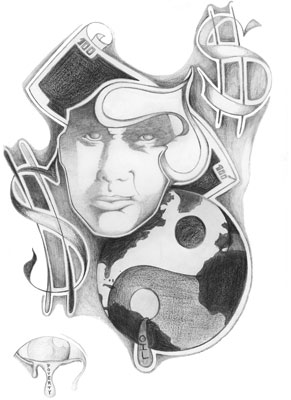All Nonfiction
- Bullying
- Books
- Academic
- Author Interviews
- Celebrity interviews
- College Articles
- College Essays
- Educator of the Year
- Heroes
- Interviews
- Memoir
- Personal Experience
- Sports
- Travel & Culture
All Opinions
- Bullying
- Current Events / Politics
- Discrimination
- Drugs / Alcohol / Smoking
- Entertainment / Celebrities
- Environment
- Love / Relationships
- Movies / Music / TV
- Pop Culture / Trends
- School / College
- Social Issues / Civics
- Spirituality / Religion
- Sports / Hobbies
All Hot Topics
- Bullying
- Community Service
- Environment
- Health
- Letters to the Editor
- Pride & Prejudice
- What Matters
- Back
Summer Guide
- Program Links
- Program Reviews
- Back
College Guide
- College Links
- College Reviews
- College Essays
- College Articles
- Back
The Problem with Trade Protectionism
Protectionism is the economic policy of restricting imports from other countries through methods such as tariffs on imported goods, import quotas, and a variety of other government regulations; the idea behind it is that domestic industries should not have to compete with imports from foreign producers, and that domestic workers’ jobs are at risk when trade is unrestricted. If trade protectionism is that good then why does it bring so many negative effects and cause so much disagreement between different countries? Some of the negative effects of trade protectionism rules are higher prices for consumers, the downward multiplier effect, inefficiency of resource allocation in the long run, and retaliation (Arguments against Protectionism).
Trade protectionism causes higher prices for consumers and the downward multiplier effect. Tariffs push up prices for consumers and insulate inefficient sectors from genuine competition. They penalise foreign producers and encourage an inefficient allocation of resources both domestically and globally. The downward multiplier effect occurs when a country protects against imports, thus reducing the exports of other countries and their aggregate demand and national output. Consequently, they will import less as the level of imports is a function of national income level. This process could continue and result in a decrease in world production and income and this would not only harm one country, but this could bring a critical drop in all economies around the world.
Some other effects that come from protectionism are the inefficiency of the resources’ allocation and retaliation. In the long run, import protection results in losses of allocative efficiency. Protected producers are not exposed to international competition, do not have enough incentive to decrease costs or innovate and it becomes less competitive and falls behind the rest of the world. In addition, tariffs increase prices in the domestic market and distort the price signals directing investments towards inefficient industries, which also leads to retaliation; the action taken by a country whose exports are adversely affected by the raising of tariff or other trade-restricting measures by another country, also called retorsion.
In addition, throughout history there have been a few cases that prove that trade protectionism is not the kind of protection that we need. The one I want to mention is the Great Depression, which happened during the 1930s, and was marked by a severe outbreak of protectionist trade policies (“The Slide to Protectionism in the Great Depression: Who Succumbed and Why?”). By its height in 1933, unemployment had risen from three percent to 25 percent of the nation's workforce. Wages for those who still had jobs fell. United States’ Gross Domestic Product was cut in half, from $103 billion to $55 billion, partly due to deflation (“The Great Depression, What Happened, What Caused It, How It Ended”). This failure did not only affect the US, but also many European Countries were part of the fall.
All in all, trade protectionism was created to protect domestic industries from foreign competition but the countries that want to use these laws need to consider more than just protection from imports, but also the power that countries have to keep the local productions at a high level; then, there might be some chance that it may work. However, so far, the only country having proved this is China and and every other country that tried to manage and control trade protectionism had it result in an economy crisis.
Work Cited
Amadeo, Kimberly. “What Happened During the Great Depression?” The Balance, The Balance, 16 Apr. 2019. Accessed 27 Apr 2019.
“Arguments against Protectionism | Economics.” tutor2u, 2018. Accessed 25 Apr 2019.
Birchall, John, et al. “International Economics.” Arguments against Protectionism.
Accessed 25 Apr 2019.
Eichengreen, Barry, and Douglas Irwin. “What Is Retaliation? Definition and Meaning.” Dictionary of International Trade. Accessed 26 Apr 2019.
“What Is Retaliation? Definition and Meaning.” Dictionary of International Trade. Accessed 25 Apr 2019.

Similar Articles
JOIN THE DISCUSSION
This article has 0 comments.
